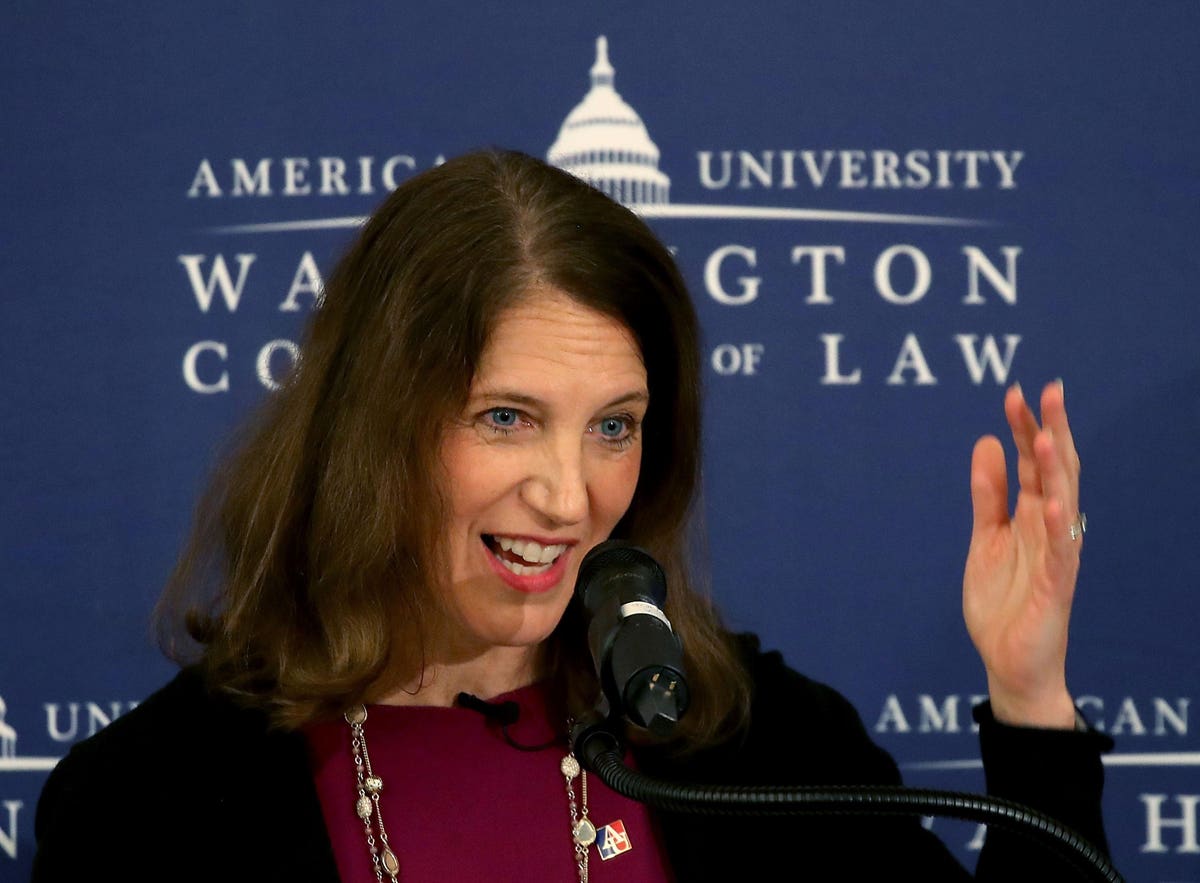Add two more names to the list of high-profile university presidents recently announcing their intent to step away from office.
Today, American University President Sylvia Burwell announced she would step down as the university’s president at the end of the 2023-24 school year. In an interview with The Eagle, American University’s campus newspaper, Burwell said “her decision is based on the progress the University has made during her tenure, her confidence in the University’s leadership team and a desire to change her lifestyle before her children leave for college.”
After retiring as president, Burwell plans to remain as a distinguished lecturer in the Sine Institute of Policy & Politics at American University. “I’m not leaving the University. I’m not going to my alma mater, I’m not going to Georgetown public policy, I’m not doing any of those things,” Burwell said. “I’m going to be right here at American University at the Sine Institute of Policy & Politics.”
On Monday, Gordon Gee, the president of West Virginia University, told the WVU Faculty Senate that he would step away from that position after his recently approved contract extension ends on June 30, 2025. “My plans beyond June of 2025 are to return to the WVU College of Law and start teaching again,” Gee said. “So, those are my plans, and I have no plans beyond that.”
The two presidents followed very different pathways to their current positions. Salvia Burrell did not hold an academic position prior to her being appointed American University’s president in 2017. She was the first woman to hold that office.
Prior to that she served as Secretary of Health and Human Services under President Barack Obama. She had also been Obama’s Director of the White House Office of Management and Budget from 2013 to 2014.
Burwell initially worked for the federal government during Bill Clinton’s presidency, where among other positions she was the deputy director of the Office of Management and Budget. Outside of government Burwell had been president of Walmart’s charitable foundation, and she also served as the chief operating officer for the Bill and Melinda Gates Foundation from 2001 to 2006.
Gordon Gee, on the other hand, has been one of the nation’s most visible university presidents over the past four decades, having served in that capacity at several institutions, in a couple of instances, more than once. Gee served as president of the University of Colorado (1985-90), The Ohio State University for two terms (1990-98; 2007-2013), Brown University (1998-2000), and Chancellor of Vanderbilt University (2000-07). He did two stints at the president of West Virginia University, first from 1981-85, and most recently from 2014 to the present.
During the current year Gee has had to contend with a serious budget deficit at West Virginia University that has led to a comprehensive review of its academic programs as it struggles to contend with a financial shortfall projected to reach as high as $75 million.
Burwell’s and Gee’s announced departures add to a spate of university president who have indicated, – just in the past month – that they will resign or retire. Included in that list are Marc Tessier-Lavigne at Stanford University, M. Katherine Banks at Texas A&M, Chuck Ambrose at Henderson State University, Joseph Eyre at Seton Hall University, and Mark Tykocinski at Thomas Jefferson University.
While the circumstances leading to those decisions varied greatly, they highlight what many higher education observers view as the increasingly tenuous nature of the university presidency.
Read the full article here





